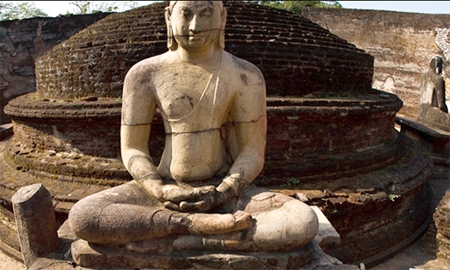
Despite a history of colonization, a 26-year civil war against the Tamil Tigers, and the 2004 tsunami, Sri Lanka has emerged as a strong country with a vibrant economy. 95% of the workforce are in employment, and while the financial crisis causes havoc worldwide, not a single bank in Sri Lanka has failed or has required a bailout. GDP doubled between 2005 and 2010. And in terms of literacy, education, and social development, Sri Lanka surpasses its neighbors India, Bangladesh, and Pakistan.
The tiny tear-drop shaped island is home to hugely diverse wildlife, and a rich culture and history. The Pearl of the Indian Ocean has a history dating back over 2500 years, with eight UNESCO World Heritage Sites lying within its 1,330 kilometers of coastline.
The island was originally settled by the Sinhalese people of northern India, then occupied by the Portuguese, the Dutch, and the British, becoming a crown colony in 1802. The country, then known as Ceylon, declared its independence in 1948, and changed its name to Sri Lanka in 1972.
Since 2001, Sri Lanka has sought closer relations with the U.S., though traditionally the country follows a non-aligned foreign policy and was a founding member of the Non-Aligned Movement (NAM). Sri Lanka is also a member of the South Asian Association for Regional Cooperation (SAARC), the World Bank, International Monetary Fund, Asian Development Bank, the Colombo Plan, and the Commonwealth.
Following the defeat of the Tamil Tigers in 2009, President Mahinda Rajapaksa has embarked on a policy of reconciliation and development. Though ethnic tensions still exist, peace has brought progress. Sri Lanka’s basic infrastructure is solid, with electricity supplied without cuts throughout the island. In education, its universities and IT camps pursue progressive policies; its tourism sector attracted record levels of foreign direct investment during the first quarter of 2011.
The country is currently bidding to host the Commonwealth Games in 2018 in the district of Hambantota, a southern province known for its beauty, wildlife and cultural heritage. Hosting the Games would further help Sri Lanka’s tourism industry, and also has the potential to showcase the country as an investment opportunity.
The very fact that Sri Lanka is in a position to bid for the Games is a testament to the resilience of its people, and the progress its government has made in recent years.
0 COMMENTS